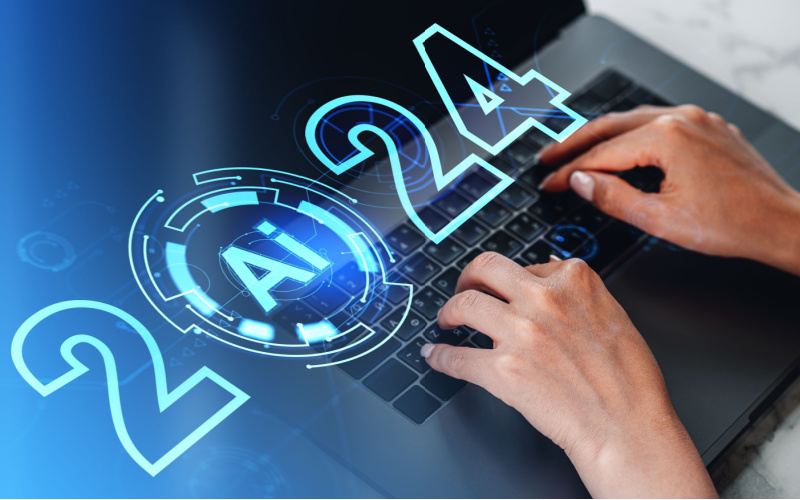3 minute read
Artificial intelligence (AI) took the world by storm in 2023, transforming the way organizations operate and make decisions. Many employers embraced this technology to streamline their operations, improve workflows, and deliver exceptional customer experiences.According to Grand View Research, AI is projected to experience a 37.3% annual growth rate between 2023-2030, showing the profound impact that AI will continue to have in the coming years.
In 2024, employers are expected to increasingly rely on AI to make critical business decisions and improve productivity. However, it's crucial for savvy employers to stay up-to-date with the evolving legal, ethical, and transparency issues surrounding the rapid adoption of AI in the workplace.
Here are four key impacts that AI will have on workplaces in 2024.
Enhanced Decision-making Decisions
In 2023, employers adopted AI to streamline HR and managerial functions like onboarding, hiring, training, and open enrollment. As this technology advances, it will increasingly support HR professionals and managers in areas where they lack experience or are overwhelmed. For example, in 2024, AI may create performance reviews, offer career coaching, and identify internal growth opportunities, empowering organizations to upskill their workforce.
Additionally, as employers trust AI's decision-making abilities more, organizations may use it for cybersecurity. AI can quickly analyze information, gain insights, and proactively identify and mitigate potential cyberthreats to protect company data.
Increased Productivity
Chatbots and virtual assistants have the potential to enhance the employee experience, respond to customer inquiries, and perform mundane tasks. That can free up time for employees to focus on more complex issues. A 2023 report by McKinsey & Company found that current AI technologies can potentially automate 60%-70% of employees' time, allowing for increased productivity. These technologies may also create workplace-specific algorithms to identify project misalignments and prioritize tasks.
Great Focus on Legality, Ethics, and Transparency
AI legislation is evolving, with states and cities creating laws regarding its use. Organizations must stay updated on legal developments to avoid penalties and reputational damage. Employers should focus on fair and transparent AI systems, understanding data sources, biases, and ethical implications. Employee training is crucial for safe and ethical AI use. In 2024, employers are expected to prioritize creating formal AI policies to meet evolving standards.
Heightened Focus on Skills-based Hiring
When it comes to hiring, an increased adoption of AI is changing the qualities employers seek in employees. There will be a greater focus on hiring individuals with behavioral skills like data analysis, AI literacy, and the ability to work alongside AI systems. "Human" soft skills such as problem-solving and communication will also be in high demand. It will create new job roles like AI ethicists, data curators, and algorithm trainers. AI proficiency may become a requirement in job postings as employers adopt more AI-centric strategies. The 2024 workforce will be defined by the ability to learn and work effectively with AI technology.
Summary
AI's prevalence in the workplace is a growing trend. As it advances, employers will integrate AI into their operations and decision-making. However, the newness of this technology can create legal and ethical issues if not properly implemented. To stay ahead, employers should monitor AI trends in the workplace for 2024 and beyond. Download the bulletin for more details.

